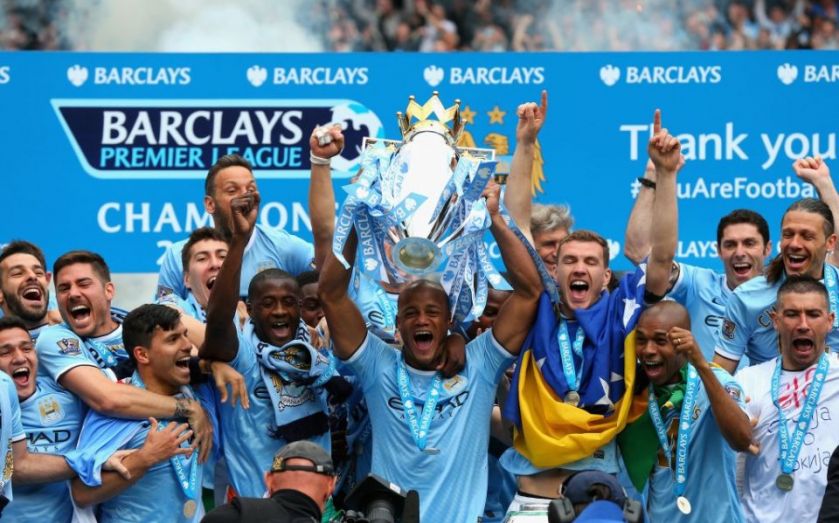Sky high bids top £5bn for Premier League TV football rights

Sky footed a huge £4.2bn bill last night in order to maintain its grip on Premier League football.
The media giant will show 126 Premier League football matches per season from 2016 to 2019. It will pay over £11m for each game.
The bill is an eye-watering 83 per cent increase over Sky’s existing three-year contract, but will also secure it more top flight English matches including the most popular Sunday afternoon fixtures which often feature clashes between the likes of Manchester United and Arsenal.
Rival BT will pay £960m for 42 matches per season over the three years, a smaller 30 per cent increase over its current £738m package of games.
The Premier League rights are allocated following a blind auction, in which firms submit sealed bids for each package of games.
Media analyst Claire Enders of Enders Analysis said last night that Sky had panicked. “They will recover from this but it’s hard to see this as a positive day for Sky and its business model. They just played the game of the Premier League.”
Enders said the average rise per game in most leagues in Europe has been under 10 per cent, with the highest around 15 per cent – far lower than the 70 per cent increase in this deal. “Sport has become a significant loss leader for Sky now whereas it was a profit centre before 2010,” she added.
Sky chief executive Jeremy Darroch said his company could cope with the costs with “substantial additional savings” from efficiency plans. “We have a clear plan to absorb the cost of the new Premier League deal while delivering our financial plans.”
The combined £5.2bn bill being shelled out by Sky and BT for the rights was ahead of most analyst’s expectations which had pegged the contract to fetch around £4bn.
“Even the top end expectations only had Sky’s bill rising by 50 per cent,” one analyst told City A.M. last night, adding that Sky shares could suffer this morning. “Overall this is a good outcome for BT. It’s a continuation of their strategy and they’ve managed to avoid paying over the odds for matches.”